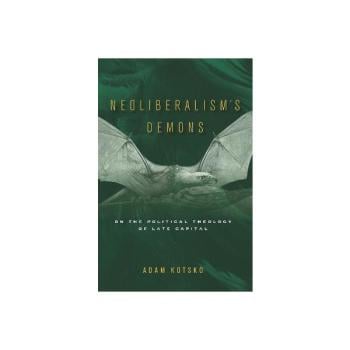Now Featured in the Patheos Book Club
Rob Bell and a New American Christianity
By James K. Wellman, Jr.
Chapter One: Mystery
Rob Bell's star is rising, even as he remains (and loves remaining) a man of mystery. His person and work provoke visceral reactions that range from adoration to repulsion, while raising profound questions. In 2011 he was named to the Time 100 list—the 100 most influential people in the world. That same year, Bell left Mars Hill, a megachurch, which he founded in 1999, to pursue broader opportunities in Hollywood to, as he explained, "compellingly share the gospel."
Bell is known to many for his Nooma films, a series of twenty-four, twelve-minute sermons. At the time of this writing, these films have been downloaded nearly three million times. In 2001 Bell switched publishing houses to HarperOne and hit the New York Times bestseller list with his controversial book, titled Love Wins: A Book about Heaven, Hell, and the Fate of Every Person Who Ever Lived.
In 2012, Bell worked on a hybrid talk show featuring spiritual and religious content, including interviews, short sermon-like presentations, and world-changing ideas, collected from Bell's tenure at Mars Hill. It was a show that Bell insisted had "never been done before." This show was developed after the TV show Stronger—which was based on Bell's unpublished novel—failed to be piloted by the Studios, despite being produced by Lost's Carlton Cuse. So, who is Rob Bell? As a pastor and an artist, Bell exhibits the irrepressible spirit of the American religious entrepreneur, but his story also serves as a frame to explore deeper patterns within the seismic shifts in modern American culture. His story and life function as a leading indicator of what it means to be a Christian in the changing modern American religious landscape.
The face of American Christianity is in transition, and Rob Bell, with his own evolving look and artistry, has opened a window on this hybrid horizon.
By hailing from a conservative Christian background, Bell has maintained the core attribute of the faith—a passion for Jesus—but has built a career and a philosophy of life that is more complex than what we usually attribute to American evangelical circles. For much of his pastoral career he has been a superstar in the evangelical world, but his appeal is much broader, including the "spiritual but not religious," liberal Christians across the spectrum, and even folks who simply admire his artistry as a communicator.
Of course, not all consumers of Bell's work are equally enthused. Evangelicals frequently discount Bell's efforts as "fluff," and "pabulum," consumed by unknowing and uneducated young people. One evangelical pastor told me, "He is one of the most dangerous figures on the Christian landscape today." Still others in evangelical circles have dismissed him as a heretic or worse.
Mark Driscoll, the equally controversial and popular evangelical pastor, who planted a church called Mars Hill just a year before Bell's, rails against Bell as some sort of biblical heretic: "I don't know him; he's a creative guy and an amazing communicator, but he holds up rabbinical authority as a key to Bible interpretation. If a Rabbi doesn't love Jesus, they have a bad interpretation. Bell argues that the Bible sets into motion a direction that while it appears to contradict the Bible literally, we should nonetheless embrace it. This came out when he shifted from male elders on his board to female elders. It's not biblical."
Bell is well-known for using various forms of media to circulate his view of Christianity. He makes his teachings easily accessible through new mediums, including film, while concurrently never shrinking from complicated discussions. In the 2007 film, Everything is Spiritual, he describes the evolutionary story of creation, mixing a dense but clear explication of the scientific origins of the universe, all framed within a wider worldview that humans, by nature, are spiritual—there is nothing humans do that is not spiritual.
A friend of mine who stands outside of Christianity but has deep interests in religion and spirituality viewed Bell's film, admiring his intelligence and artfulness, but exclaimed in frustration, "Why is Bell is so determined to retrieve Christianity? He's obviously a very smart guy and he gets the science of creation and its spiritual corollary, but why force it into the Christian narrative?"
In fact, what makes Bell's voice so unique is that he is willing to use every medium and discipline to convey that the Christian story is by its nature fundamental to every aspect of life, regardless of what others might think, or how interpreters, whether religious or not, might react.




